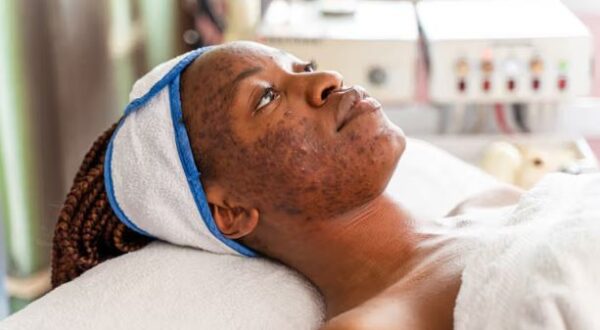Lifestyle
7 reasons your skin is suddenly getting darker and how to prevent it

Skin darkening, also known as hyperpigmentation is a medical condition caused by the overproduction of melanin pigment. It can result in dark, dull skin, blotches, and spots that worsen over time.
Although not harmful, skin darkening can reduce some people’s self-esteem, making them feel bad about themselves.
Causes of skin darkening
- UV radiation exposure: Skin darkening can result from prolonged exposure to the sun’s damaging UV rays. Skin becomes darker due to the excess synthesis of melanin caused by sun exposure.
- Lack of vitamins: The skin may become rougher and darker if vital vitamins including vitamin B complex, E, C, and A, are not eaten. Lack of vitamins also results in dull-looking skin. You can get vitamins from fresh fruits or supplements.
- Pimples and acne: Pimple and acne can cause your skin to look darker than necessary. Especially when the pimples was forcibly burst.
- Skin disorders: Several skin conditions, like acanthosis nigricans and Addison disease, can lead to skin discoloration, blotching, dark patches, and rougher skin.
- Liver disorders: Hyperpigmentation can also be brought on by some liver conditions and problems.
- Genetics: You might start to notice patches and changes in skin tone due to genetic factors that may have been present since birth.
- Changes in hormones: Alterations in hormones within our bodies can lead to skin darkening. For instance, using certain drugs that cause hormonal imbalances. Pregnancy can also make the skin quite dark.
Preventing skin darkening
- Steer clear of direct sunlight, use scarves, umbrella hat or cap to protect your skin from hot sun.
- Use clean sheets and get a good non-alcohol based face cleanser.
- Use sunscreen before being in the sun.
- Drink lots of water to stay hydrated.
- Eat fewer fatty, greasy, and spicy foods.
- Eat foods high in vitamins A, B, C, and E, such as fruits and vegetables.






